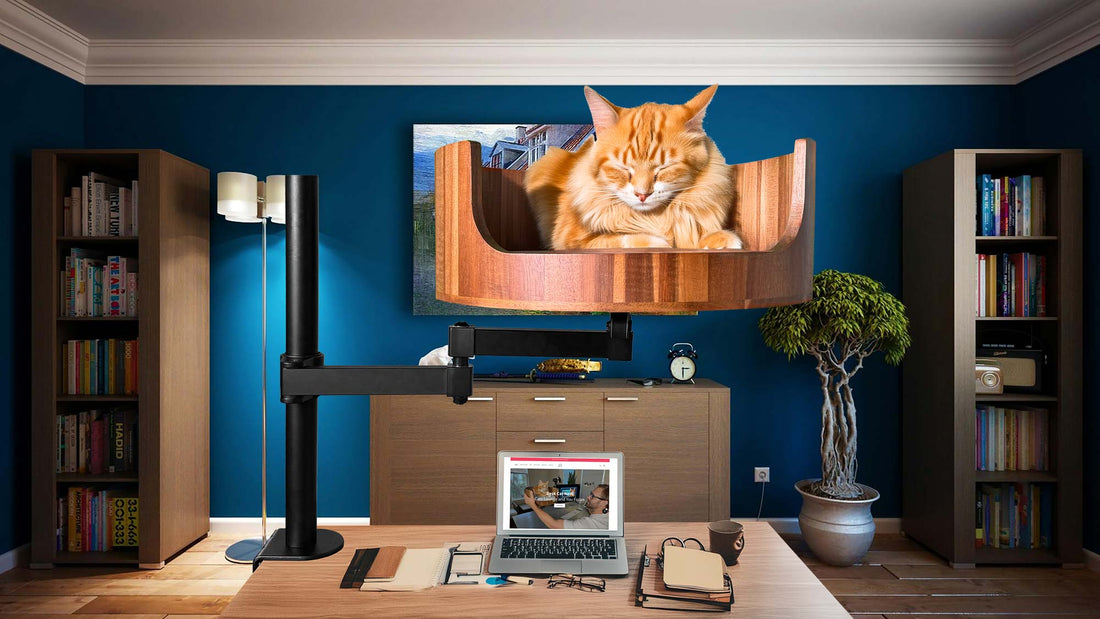
Is It Okay for Cats to Eat Flies? Understanding the Risks
Share
Desk Cat Nest is a popular blog for cat owners looking for advice and information on how to care for their feline friends. One common question that often arises is whether it is okay for cats to eat flies. In this article, we will explore the risks associated with cats consuming flies and provide a better understanding of whether this behavior is harmful to your beloved pet.
Cats are natural predators and often exhibit behavior such as hunting and catching prey, including insects such as flies. While it may seem harmless for your cat to indulge in this behavior, there are potential risks to consider. Flies may carry diseases or parasites that could be harmful to your cat if ingested. Additionally, the act of consuming flies could lead to choking hazards or gastrointestinal issues. It is essential for cat owners to be aware of these risks and to take precautions to ensure their cat's well-being.
1. Cats eating flies can pose health risks due to the potential for disease transmission.
2. Flies may carry parasites or bacteria that can make cats sick if ingested.
3. It is important to monitor cats' behavior around flies and take preventive measures to minimize risks.
4. Regular veterinary check-ups and proper parasite control can help protect cats from potential dangers associated with eating flies.
5. Educating oneself on the risks involved and taking necessary precautions can help ensure the well-being of our feline companions.
The Dangers of Cats Eating Flies
Cats have a natural instinct to hunt and catch small prey, including insects like flies. However, there are risks associated with cats consuming flies. Flies can carry diseases, parasites, and toxins that can be harmful to cats when ingested. For example, flies can transmit diseases such as bacteria and parasites that can cause gastrointestinal issues in cats. Ingesting flies can also lead to allergic reactions or toxicity if the fly has come into contact with chemicals or toxins.
Potential Health Risks for Cats
Consuming flies can pose several health risks for cats. Flies can serve as vectors for various diseases, including parasitic infections like tapeworms. These parasites can cause discomfort, weight loss, and other health issues in cats. In addition, flies may have been in contact with pesticides or other toxins that can be harmful to cats when ingested. Furthermore, allergic reactions to flies can also occur in some cats, leading to symptoms like itching, redness, and swelling.
Preventing Cats from Eating Flies
To minimize the risks associated with cats eating flies, pet owners can take preventative measures. One way to prevent cats from consuming flies is to keep them indoors or supervise them closely when they are outdoors. Ensuring that the cat's living environment is clean and free of flies can also help reduce the chances of them being exposed to flies. Additionally, using fly screens on windows and doors can prevent flies from entering the home and becoming a potential prey for cats. Providing cats with regular flea and tick preventatives can also help protect them from any potential parasites transmitted by flies.
Frequently Asked Questions about Cats Eating Flies
Is it safe for cats to eat flies?
While it is common for cats to chase and eat flies, it is generally safe for them to do so. Flies are a natural hunting prey for cats and can provide entertainment and mental stimulation for your feline friend.
Can eating flies make my cat sick?
In most cases, eating a fly will not make your cat sick. Flies are not typically harmful to cats and are considered a natural part of their diet. However, if the fly has been in contact with pesticides or other toxins, it may be best to discourage your cat from eating it.
Should I be concerned if my cat eats a lot of flies?
If your cat is eating a large number of flies regularly, it may be a sign of boredom or a lack of proper nutrition in their diet. While occasional fly-eating is normal, excessive consumption may indicate an underlying issue that should be addressed by a veterinarian.
Are there any benefits to my cat eating flies?
Chasing and catching flies can provide mental and physical stimulation for your cat, helping to satisfy their natural hunting instincts. Additionally, flies are a good source of protein for cats and can supplement their diet in small amounts.
In conclusion, while it may be natural for cats to hunt and eat flies, it is important to ensure their safety and prevent any potential health risks. A Desk Cat Bed can provide a safe and comfortable space for your feline friend to relax and rest, reducing their need to chase after flies. With its cozy design and convenient placement on your desk, this cat bed not only offers a comfortable spot for your pet, but also helps keep them away from potential dangers. Invest in a Desk Cat Bed today to provide your cat with a secure and enjoyable resting space while keeping them protected from potentially harmful habits like eating flies.



















































